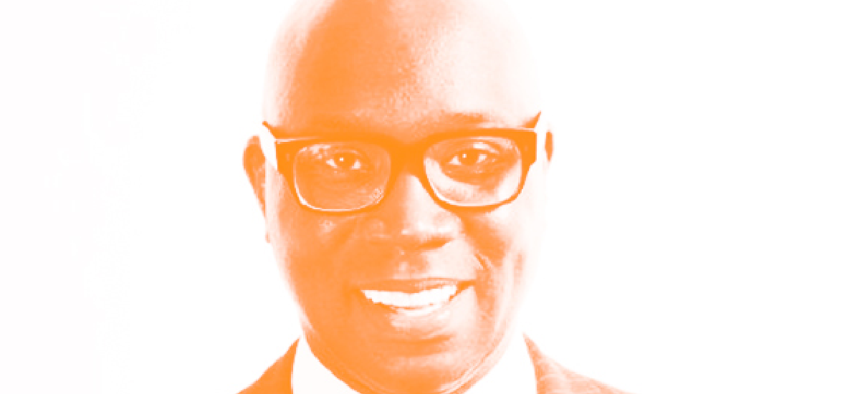CEO Corner: Charles A. Archer

Charles A. Archer is the co-founder and CEO of The THRIVE Network, the new iteration of the Evelyn Douglin Center for Serving People in Need, which offers services to clients with intellectual and developmental disabilities throughout the New York metro area. Archer is also the author of the book, “Everybody Paddles: A Leader’s Blueprint for Creating a Unified Team."
The following interview has been edited for space and clarity.
NYN: Your organization, the Evelyn Douglin Center for Serving People in Need, is being rebranded as The THRIVE Network. How does the new brand reflect the work of the organization and its future path?
CA: About 24 years ago, I started working with people with disabilities as a direct support professional. I had the opportunity to go to college during the day and work at night, and what I’ve learned over the years is that people with disabilities want the same things in life that I want. That propelled me to commit myself to providing those types of services to those people.
In 1995 and 1996, when I co-founded the Evelyn Douglin Center for Serving People in Need, at that time we were really looking at servicing underserved and under-accessed communities. Fast forward to 2015, we’re at a place now where we have to ask ourselves what we want to become to continue providing support to our core population, but also look at serving other people in other demographics with other needs.
The THRIVE Network will become a network of services for more than just people with intellectual and developmental disabilities, but people with other aging needs or homeless needs, among others.
NYN: Many nonprofits consider rebranding to attract more funding, volunteers, grow the organization, etc. What has the rebranding process been like for The THRIVE Network?
CA: The way that we approached it was by coupling the CEO and leadership with the board of directors. We assembled an excellent board that believes in the organization as it is and shares a vision on what it needs to become. When you get those three groups together, you gain more of a consensus about where (the organization) needs to go.
What really helped me, as a CEO, was bringing in someone that could help me with the rebranding. There are moments as a leader when you’re expected to know it all—and in some instances you really should—but we had the opportunity to work with a fantastic company that was able to scan the space in New York state to see what names had been used, what kind of logo we should use, and help us through the whole process. That’s really what pushed us to become The THRIVE Network.
NYN: You’re an author of a compendium of essays on leadership philosophy, “Everybody Paddles.” What was the inspiration for that book, and what is your personal leadership philosophy?
CA: In “Everybody Paddles: A Leader’s Blueprint for Creating a Unified Team,” I lay out six principles that I really believe can create a culture of change, a culture where (people) believe that they matter and want to add value at work. Over the years—I’m an attorney and I’ve also done some teaching throughout the city—I’ve realized that many people come to work and they feel devalued. There’s a sense that people wonder, “Do I have something worth contributing and will anyone pay attention?”
“Everybody Paddles” has become a guide for people to understand that you really are expected to add value at The THRIVE Network. We don’t want it just on Monday or Friday. We want it five days a week, and your colleagues want it, and the people that we serve want it. It’s also become about the concept that followership is as important as leadership, and without one you can’t have the other.
NYN: This is a challenging environment for many nonprofits throughout the industry. What is your advice to other agencies navigating through these difficult times, and what do you think that government partners need to bring to the table?
CA: I think that there has to be active participation, active communication and active involvement. As a nonprofit executive, you can’t be in a position where you expect government to come up with all of the solutions, but from the government side, there has to be a willingness to listen.
In our experience leading nonprofits, we’re on the ground providing necessary services on a day-to-day basis. Government partners don’t have the same perspective and can’t always see how their actions directly impact people on the ground. The ability to have active communication is very important so that we can make sure that our perspective gets across.
Thinking about involvement, we at The THRIVE Network make sure to be involved in a lot of activities in the community and get a seat at the table in discussions that affect the community, not just so that we can know what’s going on but so that we can try to influence the direction of the discussion.
NYN: What are your biggest advocacy goals for 2015? Where would you like to push the conversation?
CA: In terms of the discussion regarding intellectual and developmental disabilities, the health services and delivery systems are changing. From a nonprofit’s perspective we understand that there must be changes, but we need to be careful about how drastically and swiftly things change. In terms of government, if you are going to say that you want to protect and serve all New Yorkers, you need to back that up with actions; it can’t just be a philosophy. There must be implementation.
NEXT STORY: Frontline Hero: Armando Rosado